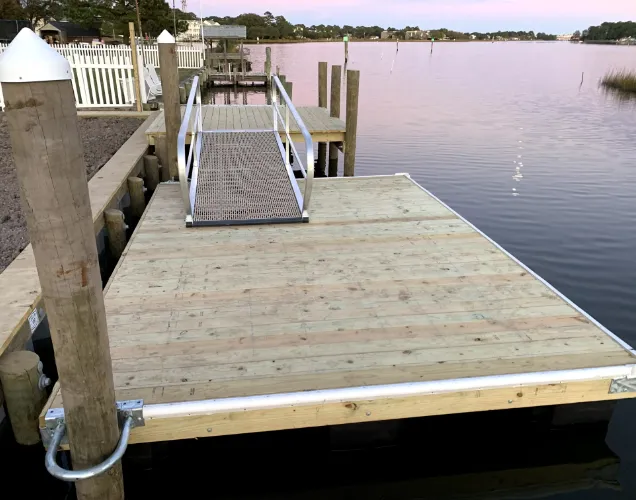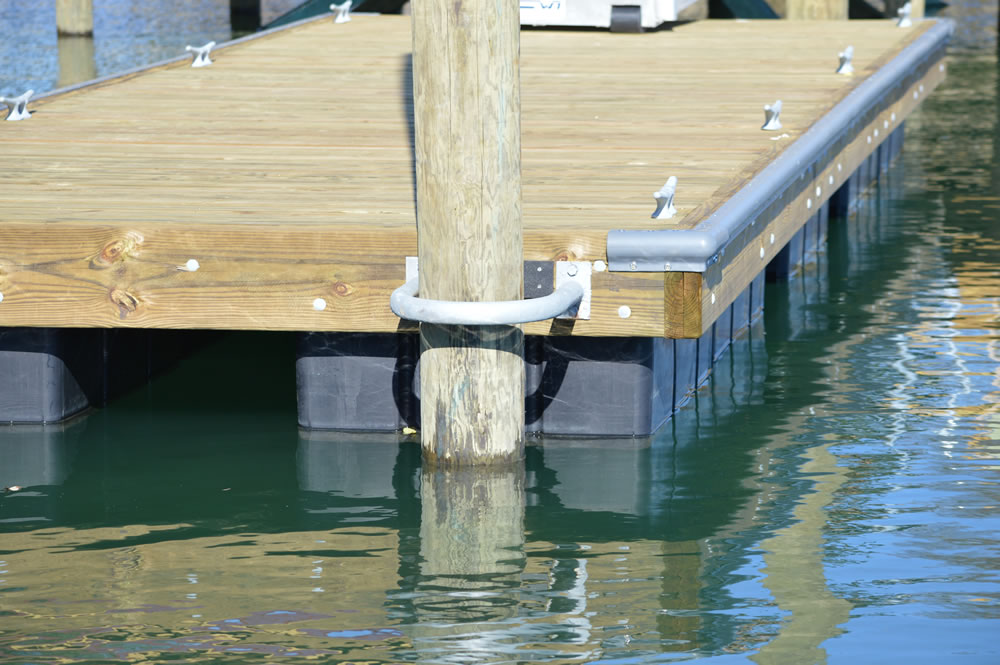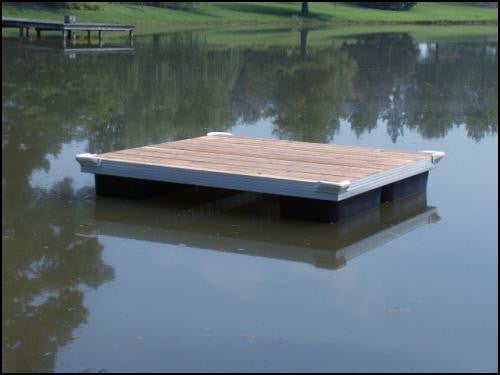Selecting the Right Dock Company: Variables to Consider for a Seamless Installment
Selecting the Right Dock Company: Variables to Consider for a Seamless Installment
Blog Article
The Ultimate Overview to Choosing the most effective Floating Docks
Choosing the excellent floating dock calls for a thorough understanding of different components that influence both efficiency and durability. Elements such as dock types, materials, and vital features significantly impact your decision-making process.
Understanding Floating Dock Types
When choosing a drifting dock, it is vital to comprehend the different types offered, as each serves unique functions and applications. Floating docks largely fall under three groups: modular, fixed, and pontoon docks.
Modular docks are made up of private sections that can be quickly assembled or reconfigured, making them suitable for transforming water levels and diverse usages, such as commercial operations or recreational activities. Their versatility enables for personalization based upon specific needs.

Pontoon docks are identified by their buoyant structure, commonly composed of several pontoons that offer stability and assistance. They are particularly appropriate for larger vessels and are generally made use of in marinas or for waterfront buildings. Understanding these types aids in selecting the most ideal floating dock to satisfy particular requirements, ensuring optimum functionality and safety and security.
Secret Materials for Toughness
Choosing the appropriate materials for floating docks substantially effects their longevity and longevity. The most common products include timber, plastic, steel, and composite materials, each offering distinct benefits and restrictions.
Wood, often favored for its visual allure, requires routine maintenance to withstand wetness and degeneration. Pressure-treated lumber can improve resistance to rot, however it might still be susceptible to pests and weathering.

Plastic docks, constructed from high-density polyethylene (HDPE), are resistant to rust, UV radiation, and impact, making them a popular option for coastal atmospheres. Their light-weight nature likewise facilitates easy installation and moving.
Metal docks, commonly created from aluminum or galvanized steel, supply outstanding strength and durability. They are resistant to corrosion, especially when dealt with, but may require extra insulation to avoid heat accumulation in hot climates.
Composite materials, integrating wood fibers and plastics, provide the advantages of both wood and plastic, standing up to wetness and fading while requiring very little maintenance. - floating dock company
Eventually, the option of products ought to align with environmental problems, planned use, and maintenance preferences to make sure the floating dock stays useful and visually pleasing over time.
Vital Features to Take Into Consideration
While the choice of materials is essential, taking into consideration essential features for floating docks is equally essential to guarantee ideal efficiency and user fulfillment. One essential function to evaluate is the dock's buoyancy ability, which establishes just how much weight it can sustain without submerging. floating dock builder. This is essential for accommodating boats, personal watercraft, and even entertainment tasks
Additionally, transportability is a considerable factor to consider. Depending upon your requirements, you might desire a dock that is easy to deliver and disassemble, specifically if you plan to move it seasonally. Stability is another vital attribute; a properly designed floating dock should lessen activity brought on by wind and water currents, offering a safe system for customers.
Safety and security features, such as non-slip surfaces and rounded edges, are additionally crucial to avoid crashes, especially in wet conditions. In addition, take into consideration Your Domain Name the schedule of accessories, such as bumpers, cleats, and ladders, which can improve the capability of your dock.
Installation and Upkeep Tips
Establishing up and preserving a drifting dock needs careful planning and focus to detail to guarantee its durability and optimum efficiency. Begin by selecting an ideal area that lessens direct exposure to strong currents and waves, which can trigger wear and tear. Guarantee that the water deepness is adequate for the dock's elevation which it is anchored securely to stop activity.
During setup, follow the supplier's guidelines very closely, as improper setting up can compromise stability. Usage top notch materials resistant to corrosion, such as aluminum or dealt with timber, to enhance resilience. Frequently check all components, including drifts, ports, and securing systems, for indications of damages or wear.
If your dock uses flotation gadgets, guarantee they continue to be description intact and free from slits. By adhering to these setup and upkeep ideas, you can enjoy a useful and reputable floating dock for years to come.
Budgeting for Your Dock
Budgeting for your dock is a critical action that can significantly impact your overall contentment and investment in a beachfront residential property. Establishing a clear budget plan aids you browse the various choices available and ensures you make notified choices that align with your monetary capacities.
Begin by establishing the dimension and design of the dock you call for, as these variables will greatly influence the cost. Floating docks can differ substantially in rate, depending on materials, buoyancy, and attributes like accessories and ramps. Research study various manufacturers and suppliers to contrast costs and understand the marketplace worth.
Along with first prices, consider ongoing expenses such as maintenance, insurance, and potential repairs. Assign funds for these repeating costs to prevent shocks down the line. It's additionally sensible to allocate any type of necessary licenses or examinations, which may be required by neighborhood guidelines.
Last but not least, bear in mind the possible return on financial investment. A tactical dock can enhance your property's worth and charm, giving a positive monetary effect in the long-term. By budgeting effectively, you can make certain that site here your dock fulfills your needs without jeopardizing your economic security.
Final Thought
To conclude, choosing the suitable floating dock necessitates a complete assessment of various aspects, consisting of dock kinds, materials, important functions, and setup procedures. Focusing on durability and conformity with regional policies eventually enhances capability and building worth. Careful consideration of financial constraints will certainly better make certain a sound financial investment. By sticking to these standards, people can make educated decisions that promote long-lasting fulfillment and use in aquatic environments.

While the option of materials is crucial, considering vital features for floating docks is similarly crucial to make sure optimal efficiency and individual fulfillment.Establishing up and maintaining a floating dock calls for mindful planning and interest to information to ensure its longevity and ideal efficiency. Floating docks can differ considerably in price, depending on products, buoyancy, and features like devices and ramps.In verdict, choosing the optimal floating dock requires a comprehensive analysis of various aspects, including dock types, products, necessary functions, and installation processes.
Report this page